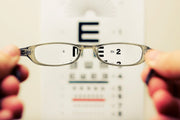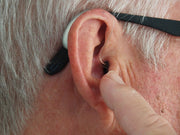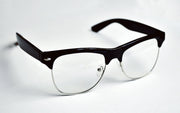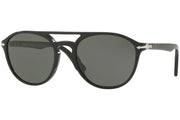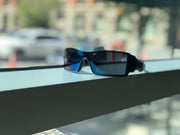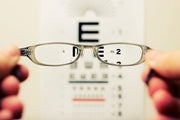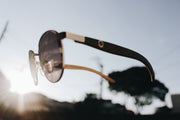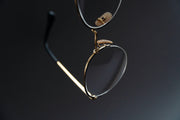How Long Do Sunglasses Last: Expert Insights and Tips
Sunglasses are a staple accessory for many people, especially during summer. They not only add style to an outfit, but they also protect the eyes from harmful UV rays. However, many people may not know how long their sunglasses can last before needing to be replaced.
According to optometrists, the lifespan of sunglasses can vary depending on usage, care, and quality. Generally, most sunglasses can last a couple of years with proper maintenance. However, it is important to note that the protective coating on the lenses can wear off over time, reducing the sunglasses' effectiveness in blocking UV rays.
So, how can you tell if your sunglasses need to be replaced? One way is to pay attention to the condition of the lenses. If you notice scratches, cracks, or discoloration, it may be time to invest in a new pair. Additionally, if you have had the same pair of sunglasses for several years, it may be a good idea to get a new pair to ensure optimal protection for your eyes.
Factors Affecting Sunglasses Lifespan
Sunglasses are a popular accessory that enhances your style and protects your eyes from harmful UV rays. However, like any other product, sunglasses have a lifespan. The lifespan of sunglasses depends on various factors. In this section, we will discuss the factors that affect the lifespan of sunglasses.
Quality of Materials
The quality of materials used to make sunglasses is one of the most important factors that affect their lifespan. Sunglasses made with high-quality materials such as polycarbonate or glass lenses and durable frames tend to last longer than those made with low-quality materials. High-quality lenses are scratch-resistant and can withstand wear and tear, while durable frames can withstand accidental drops and impacts.
Frequency of Use
The frequency of use is another factor that affects the lifespan of sunglasses. If you wear your sunglasses daily, they will wear out faster than if you wear them occasionally. The more you wear your sunglasses, the more likely they will get scratched, damaged, or broken. Therefore, having multiple pairs of sunglasses to rotate them and extend their lifespan is essential.
Environmental Factors
Environmental factors such as heat, humidity, and exposure to sunlight can also affect the lifespan of sunglasses. Sunglasses exposed to extreme heat or humidity can become brittle and break easily. Exposure to sunlight can also cause the lenses to fade or discolor over time. Therefore, it is essential to store your sunglasses in a cool, dry place and avoid leaving them in direct sunlight for extended periods.
In conclusion, the lifespan of sunglasses depends on various factors such as the quality of materials, frequency of use, and environmental factors. By taking care of your sunglasses and following the tips discussed in this section, you can extend their lifespan and enjoy their benefits for longer.
Signs That Your Sunglasses Need Replacement
Sunglasses are an essential accessory that protects our eyes from harmful UV rays and glare. However, like any other accessory, sunglasses also have a lifespan and need replacement when they show signs of wear and tear. Here are some signs that indicate that your sunglasses need replacement:
-
Scratches on Lenses: Scratches on lenses can cause visual distortion and reduce the effectiveness of UV protection. If the scratches are deep and cannot be repaired, it's time to replace your sunglasses.
-
Loose or Broken Hinges: Hinges are an important part of sunglasses that keep the frame and lenses together. If the hinges are loose or broken, they can cause the lenses to fall out or break. It's time to replace your sunglasses if the hinges are malfunctioning.
-
Discoloration of Lenses: Over time, sunglasses' lenses can become discolored due to exposure to sunlight, heat, and sweat. Discolored lenses can affect your vision and reduce the effectiveness of UV protection. If your lenses have become discolored, it's time to replace your sunglasses.
-
Outdated UV Protection: Sunglasses with outdated UV protection can harm your eyes. Replacing your sunglasses every two years is recommended to ensure they meet the current UV protection standards.
-
Out of Style: If your sunglasses are out of style and you want to keep up with the latest fashion trends, it's time to replace them. Wearing outdated sunglasses can affect your overall appearance and style.
In conclusion, sunglasses are an important accessory that must be replaced when they show signs of wear and tear. Keep an eye out for the signs mentioned above, and replace your sunglasses when necessary to protect your eyes from harmful UV rays and glare.
Tips for Extending the Lifespan of Your Sunglasses
Sunglasses are a must-have accessory for many people and can be quite an investment. Whether you've spent a lot of money on designer shades or prefer more budget-friendly options, it's important to take good care of your sunglasses to ensure they last as long as possible. Here are some tips for extending the lifespan of your sunglasses:
Handle Your Sunglasses with Care
One of the easiest ways to extend the life of your sunglasses is to handle them with care. Avoid tossing them around or placing them in pockets or bags where they can get crushed. When you remove them, hold them by the frames rather than the lenses. This will help prevent scratches and other damage.
Keep Your Sunglasses Clean
Keeping your sunglasses clean is another important step in extending their lifespan. Use a microfiber cloth or lens-cleaning solution to clean your lenses regularly. Avoid using harsh chemicals or solvents that can damage the lenses or frames. Keeping your sunglasses clean will help them last longer and ensure you can see clearly through them.
Store Your Sunglasses Properly
Storing your sunglasses properly is also important. When you're not wearing them, store them in a protective case. This will help prevent scratches and other damage. Avoid leaving your sunglasses in hot temperatures or direct sunlight, as this can cause the frames to warp or the lenses to become discolored.
Replace Your Sunglasses When Necessary
Even with the best care, your sunglasses will eventually wear out or become damaged. When this happens, it's important to replace them. Not only will this ensure that you're able to see clearly and protect your eyes from the sun, but it will also help prevent further damage to your eyes.
By following these simple tips, you can extend the lifespan of your sunglasses and ensure that they provide you with years of protection and style.







